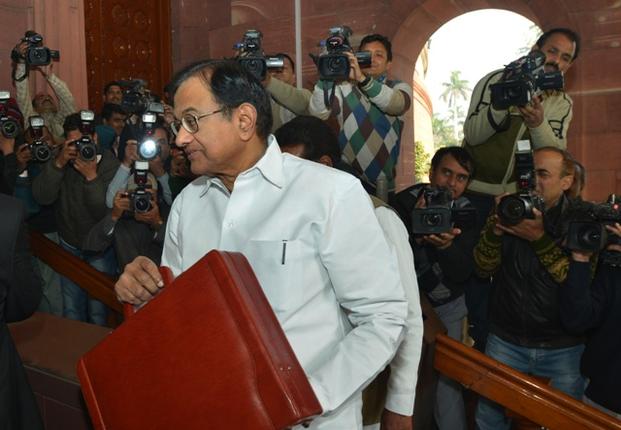 Asserting that there was no policy paralysis in policy making or decision taking, Finance Minister P. Chidambaram on Monday said that infrastructure sector got a major boost during the UPA regime that led to rolling out of projects worth Rs. 6,60,000 crore.
Asserting that there was no policy paralysis in policy making or decision taking, Finance Minister P. Chidambaram on Monday said that infrastructure sector got a major boost during the UPA regime that led to rolling out of projects worth Rs. 6,60,000 crore.
Tabling the interim budget for 2014-15 before Parliament, the Finance Minister also announced reduction in excise duty on capital goods from 12 per cent to 10 per cent, a move likely to benefit the power equipment manufacturing industry which has been under pressure in the recent times on profits as well as book orders.
Further, Mr. Chidambaram said it was the swift decision making that led to clearance of projects worth Rs. 6,60,000 crore till January this year. “At a time when it appeared that a number of projects would fail because of the logjam, Government took the bold step to set up the Cabinet Committee on Investment (CCI). Thanks to the swift decision that by the end of January 2014, way was cleared for completing 296 projects with estimated project cost of Rs 6,60,000 crore,” he told Lok Sabha.
Mr. Chidambaram said infrastructure has been a priority area for his government. “We have given a big push to infrastructure and capacity addition in infrastructure industries. In 2012-13 and in the nine months of the current financial year, we have added 29,350 megawatts of power capacity, 3,928 kms of National Highways and 39,144 kms of rural roads under Pradhan Mantri Grameen Sadak Yojna (PMGSY),” he added.
He said in the power sector, country’s installed power generation capacity has more than doubled to 2,34,600 MW in the past 10 years. “India’s power generation capacity 10 years ago (2004) was 1,12,700 MW, it has now risen to 2,34,600 MW,” he said. Mr. Chidambaram also announced that four new ultra mega solar power projects (UMPPs) would be set up during 2014-15.
Stating that these changes would come into effect immediately on issue of the notification and would continue till March 31, 2014, Kothari added that the above changes would give temporary relief to select sectors. In addition to these, 3,343 Km of new railway tracks were laid and 217.5 million tonnes of capacity per annum was added in the portssector. In addition to this, seven new airports are under construction and massive progress was made in auction of oil and gas blocks in the country. “We have also facilitated Infrastructure Debt Funds to provide take-out finance for infrastructure projects and ease the pressure on banking sector,” he added.
Strongly batting for higher allocations for the infrastructure sector, he said there should be more funds for defence, railways, national highways and telecom. He said massive investment in infrastructure would be mobilised through the Public Private Partnership (PPP) route. Overall, it is estimated that the infrastructure sector will need investment of $1 trillion in the 12th Five Year Plan period (2012-17).
Similarly, he said additional capacities were being installed in major manufacturing industries and the National Investment and Manufacturing Zones (NIMZ) along Delhi Mumbai Industrial Corridor (DMIC) were step in this direction. “Nine projects had been approved by the DMIC trust under this initiative,” he added. Three more industrial corridors connecting Chennai and Bengaluru, Bengaluru and Mumbai and Amritsar and Kolkata are under different stages of preparatory works.
The Central Plan outlay for Power Ministry saw a marginal 1.7 per cent increase for budgetary estimate (BE) at Rs. 60,384 crore as against Rs. 59,329 crore during 2013-14. For the Coal Ministry, BE stood at R.s 12,561 crore, higher by 6.86 per cent.

